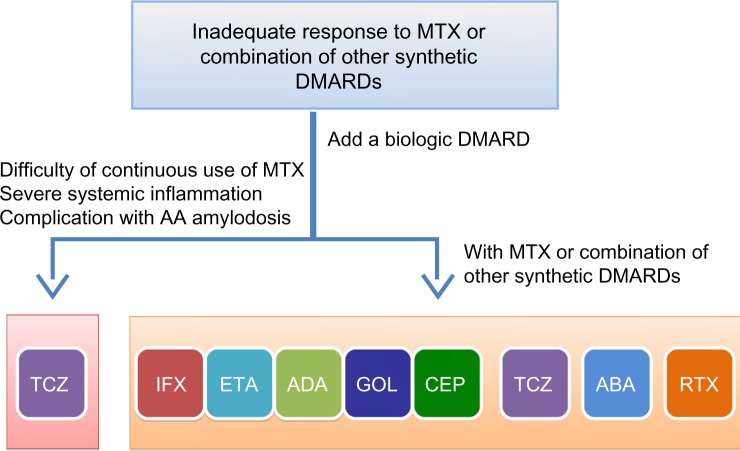Figure 3.
Selection of biologic disease modifying antirheumatic drugs.
Notes: Rheumatoid arthritis patients who fail to respond to methotrexate (MTX) alone or in combination with other synthetic disease modifying antirheumatic drugs (DMARDs) need to be treated with a biologic DMARD. For patients who can continue to receive MTX, any of the seven biologic DMARDs should be selected. These include five tumor necrosis factor inhibitors (infliximab, etanercept, adalimumab, golimumab, and certolizumab pegol), the IL-6 receptor blocker tocilizumab, the T-cell stimulation blocker abatacept, and the B-cell depletory rituximab. Rituximab is recommended to be used for patients who have certain contraindications for other agents such as a recent history of lymphoma, latent tuberculosis with contraindications to the use of chemoprophylaxis, live in a tuberculosis endemic region, or a previous history of demyelinating disease. Tocilizumab may be selected for patients who 1) cannot continue treatment with MTX or other synthetic DMARDs, 2) present with severe inflammatory findings, and 3) have or who are at high risk of developing amyloid A amyloidosis.
Abbreviations: ABA, abatacept; ADA, adalimumab; CEP, certolizumab pegol; DMARDs, disease modifying antirheumatic drugs; ETA, etanercept; GOL, golimumab; IFX, infliximab; MTX, methotrexate; RTX, rituximab; TCZ, tocilizumab.

